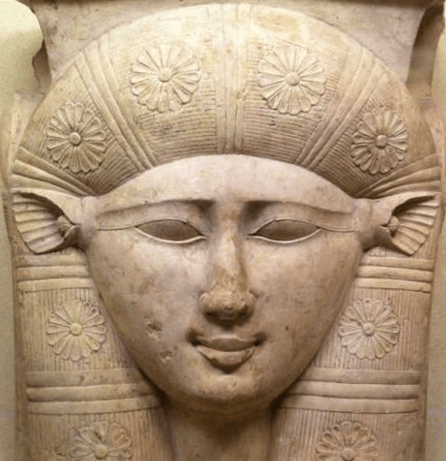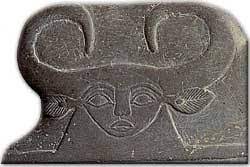
Polytheist, Ph.D. in Philosophy. Justice to all beings, reverence to all Gods.
How to get URL link on X (Twitter) App



 Hathor shares Her frontality with Bes, who is closely linked to Her in the Returning Goddess rites. (The image of Bes on the left comes from the great temple of Hathor at Dendera.) Hathor inherits Her frontal iconography from Bat, who we see in a Predynastic depiction at right.
Hathor shares Her frontality with Bes, who is closely linked to Her in the Returning Goddess rites. (The image of Bes on the left comes from the great temple of Hathor at Dendera.) Hathor inherits Her frontal iconography from Bat, who we see in a Predynastic depiction at right. 
